Remembrance Day: Veterans stress importance of poppies
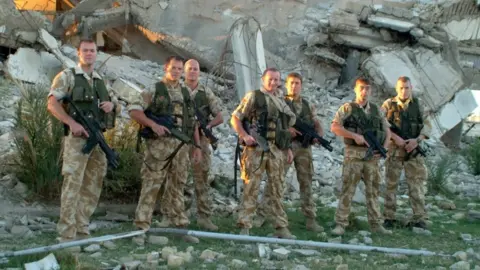 Supplied
SuppliedThis year's Remembrance Day marks the 20th anniversary of the 2003 invasion of Iraq and 70 years since the end of the Korean War.
The BBC spoke to veterans who fought in different conflicts around the world and asked what the poppy meant to them.
"It's a feeling of pride," said 105-year-old John Hamilton from Wiltshire, one of the oldest living survivors of World War Two.
"The poppy means that you mustn't forget those who fought for the country and lost their lives," he said.
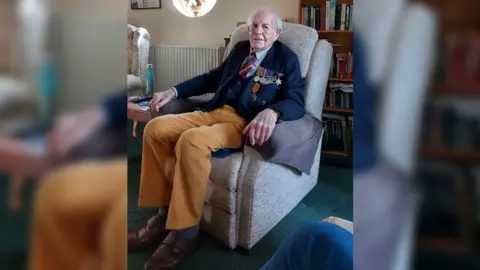 Adela Forestier-Walker
Adela Forestier-WalkerMr Hamilton joined the army in 1937 and was 21 when World War Two began.
He says the poppy is a way to remember those who "kept this country alive".
Mr Hamilton, who manned anti-aircraft guns during the conflict, says defending Britain against Hitler was "a necessity".
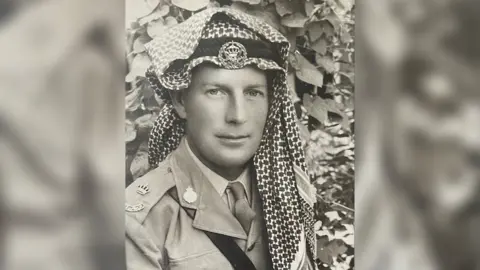 Family Handout
Family Handout"At the time [I felt fear]. But on the other hand, you had to say well here we are, we're a group, we're together and that to some extent disperses any fear," he said.
"You had bombs coming down the whole time, but somehow it was a sense of sort of accepting it all.
"I think those haven't fought in a war look up at us and say 'My goodness, I might not be here if it hadn't been for you'."
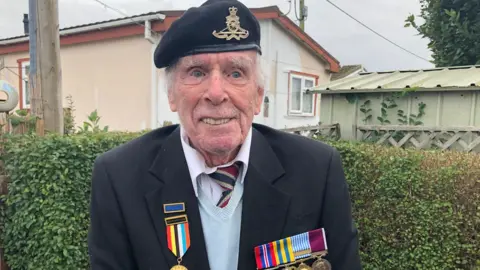
In 1951, Tommy Clough, from Gloucestershire, fought at the battle of Imjin River in the Korean War, helping save the capital Seoul after four long days of heavy fighting.
He said a lot of soldiers did not come back, so "it's very good" to have something to remember them by.
"We don't forget but a lot of people do," said Mr Clough.
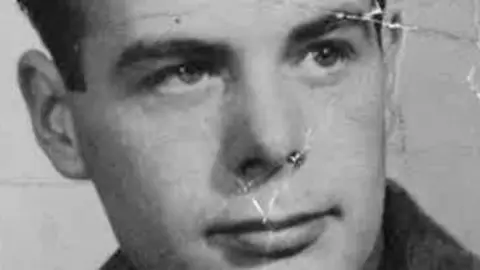 Tommy Clough
Tommy CloughDuring a reunion with seven other survivors from his 'Glorious Glosters' regiment who fought in Korea, he said they were "very lucky" they came home.
It had been nearly seven decades since they had all been together.
"I shall always remember this. I haven't got long to go mind, I'm 93 now," he added.
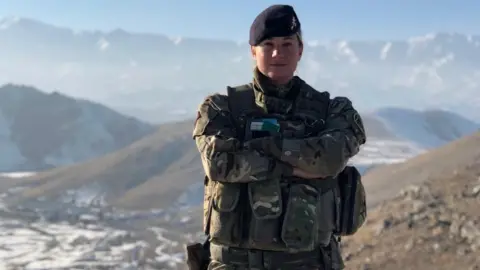 Yvette Kemp
Yvette KempSsgt Yvette Kemp from Larkhill, Wiltshire, trained female Afghan recruits during Operation Toral in 2018, becoming one of the first people to do so.
Earlier, in 2013, she had been deployed to Afghanistan on Operation Herrick, spending six months working as a vehicle mechanic.
She says the poppy is a way to show support for the armed forces.
"I just always think how lucky we are. Coming back from that tour I realised how much we take for granted," she said.
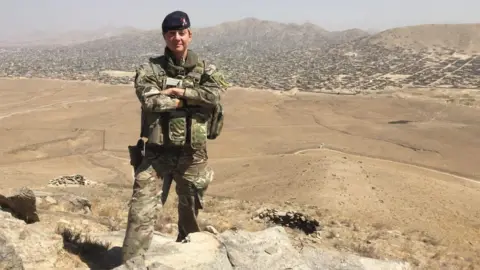 Yvette Kemp
Yvette KempWhen she first arrived in Afghanistan, she said local male physical training staff did not want to speak to her.
"They only wanted to talk to the male staff, but then after a few weeks we forged such a bond," she said.
"I started off just by kicking a football with them. No matter what language you speak, football can really start to build bonds. At the end of it, I made some really good friends.
"[The poppy] means a lot to me. It's so nice to see the nation come together and everyone wearing the poppy, showing their support for the armed forces - not for just the people who lost their life during the war but in recent operations.
"It's a great way to really show appreciation to everyone who has given their lives for us to be here today."
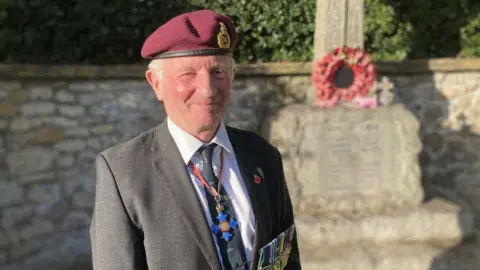
Maj General Bill Moore from Tockenham, Wiltshire, was commander of the 19th Mechanised Brigade in June 2003 during deployment in Iraq, where he said his comrades performed "exceptionally".
He says the poppy is a reminder of those who did not make it back home.
"It was a tough tour for us. We lost nine and over 150 [were] wounded and evacuated back to the UK. Particularly the months July, August and September were quite stark.
"It was a very hot environment. It was 58 degrees [celsius] of heat in Basrah in the summer and running around in body armour was tough.
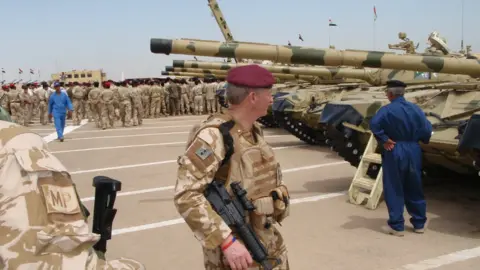 Contributed image
Contributed image"As you get closer to Armistice day and Remembrance Sunday then for me, when I put the poppy on, it reminds me of the people I deployed with who didn't come back, and the support that their families still need.
"It reminds me of the people who came back and had physical and mental injuries.
"It reminds me of the affected population - those people who were caught up in the war and still need our help and support to give them hope for the future."

Follow BBC West on Facebook, X and Instagram. Send your story ideas to: [email protected]
